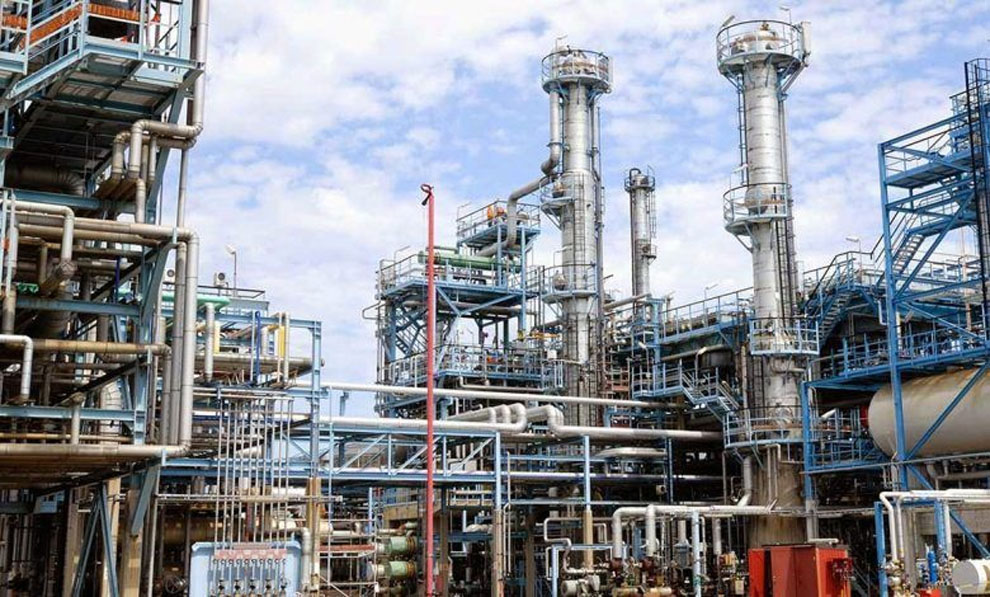Business
Cybersecurity in the era of AI

Cybersecurity in the era of AI
Colin Baumgart, CTO and Commercial Solutions Area Director at Microsoft South Africa
The cybersecurity landscape is undergoing a profound transformation, driven by the relentless evolution of technology and the increasing sophistication of cyber threats. In this dynamic environment, artificial intelligence (AI) has emerged as a pivotal ally in the fight against cybercrime.
AI’s ability to analyse vast amounts of data at lightning speeds enables the identification of patterns and anomalies that may indicate a security breach, often before it occurs. This proactive stance is crucial in a time when reactive measures are no longer sufficient.
But in an era where digital threats are escalating in complexity and scale, we cannot just think about defending against cyber threats, we need to be advancing the way we design, build, test and operate our technology to meet the highest standards of security. It is why, we have created the Secure Future Initiative (SFI), a multi-year undertaking to safeguard our digital ecosystem.
It is an approach that is anchored in three fundamental principles: secure by design, secure by default, and secure operations, ensuring that security is not an afterthought but a foundational element of everything we create.
This commitment to cybersecurity extends beyond our own products. Through collaborations and partnerships, we are contributing to a broader security ecosystem, sharing threat intelligence and best practices. This collaborative effort is vital because cyber threats do not recognise boundaries and can ripple through networks, affecting countless users.
Recent cyber threats have shown a marked increase in both sophistication and frequency, posing significant challenges to cybersecurity defences worldwide.
A notable trend is the surge in mobile, Internet of Things (IoT), and operational technology (OT) cyberattacks, which underscores the expanding threat landscape beyond traditional computing environments.
Our 2024 Digital Defense Report highlights an alarming rise in attacks, with incidents targeting customers globally, doubling to 600 million per day, revealing the growing collaboration between nation-state actors and cybercriminals.
Over 78 trillion security signals per day from the cloud, endpoints, software tools and our partner ecosystem inform our insights, and help us to understand and protect against digital threats and criminal cyberactivity.
Data breaches have also been rampant, with TechCrunch reporting over 1 billion stolen records in 2024 alone. These breaches have not only compromised personal information but have also emboldened criminals who profit from cyberattacks. As the threats evolve, so must the strategies to combat them, requiring a concerted effort from individuals, organisations, and governments alike.
According to Interpol’s African Cyberthreat Assessment Report 2024, the rapid growth of cybercrime is further illustrated by the estimation that in 2023 there was a 23% year-on-year increase in the average number of weekly cyberattacks per organisation in Africa – this average was the highest in the world.
In this era of AI, we are all cyber-defenders. Despite this, 52% of employees still say their job has nothing to do with cybersecurity, according to The Phishing Benchmark Global Report.
There is a widespread recognition of the need to build a security culture to increase the understanding of security’s value to the business, as well as drive security awareness.
People, process and technology need to be in harmony – because businesses can have the most sophisticated technology and comprehensive processes in place to monitor, detect and respond to breaches, but if a person gives their password away or clicks on a phishing email, it becomes exponentially more difficult to protect the organisation.
Ultimately, it boils down to the fact that the individual user level is a person – and unless they have been trained to be security aware, they are capable of human error and are likely to remain the weakest link in the security chain.
Many organisations are investing in strengthening their employees’ cybersecurity knowledge and offer theoretical and practical training by carrying out spoof attacks, such as sending out phishing emails, evaluating who clicks on the links and then providing more in-depth training to plug identified gaps.
Employees are the first and last line of defence and it is why educating everyone on staying cybersafe is so important. It’s time to act now.
We recognise that the path to a secure future is paved with challenges and opportunities alike.
The same technology that empowers us can also empower adversaries. Cybercriminals are increasingly utilising AI to launch more sophisticated attacks, bypass traditional defences, and automate their malicious activities. This escalation necessitates a continuous evolution of our security strategies to stay ahead of these AI-generated threats.
As the cybersecurity landscape continues to evolve, the partnership between AI and human expertise becomes increasingly important. AI can handle the heavy lifting of data analysis, but human judgment is irreplaceable when it comes to nuanced decision-making. Organisations must foster a culture of continuous learning and adaptability, empowering their workforce to leverage AI effectively.
We must remain vigilant, adapting our defences to counteract the evolving threats in the cybersecurity landscape. And as we navigate this shifting terrain, the synergy between AI and human intelligence will be the cornerstone of a resilient cybersecurity posture.
By embracing the transformative potential of AI while remaining cognisant of its risks, we are setting a new standard for digital defence—one that is robust, intelligent, and ever-evolving.
Our mission is clear: to secure our digital world, so that everyone, everywhere, can achieve more.
Business
Naira exchanges N1,650/$ in parallel market

Naira exchanges N1,650/$ in parallel market
Yesterday, the Naira appreciated N1,650 per dollar in the parallel market, compared to N1,655 on Monday.
Similarly, the Naira appreciated to N1,535 per dollar in the official foreign exchange market.
Data published by the Central Bank of Nigeria, CBN, showed that the exchange rate for the Nigerian Foreign Exchange Market (NFEM) fell to N1,535 per dollar from N1,537 per dollar on Monday, indicating N2 appreciation for the naira.
READ ALSO:
- Tension as Anambra community union asks monarch to stop Ofala Festival
- Exchange rate ends 2024 at N1,535/$1, marking a 40.9% depreciation
- Lagos govt clears traders from rail tracks at Bolade, Oshodi
Consequently, the margin between the parallel market and NFEM rate narrowed to N115 per dollar from N118 per dollar on Monday.
Naira exchanges N1,650/$ in parallel market
Business
Exchange rate ends 2024 at N1,535/$1, marking a 40.9% depreciation

Exchange rate ends 2024 at N1,535/$1, marking a 40.9% depreciation
The exchange rate between the naira and the dollar ended the year at N1,535/$1 representing a 40.9% depreciation for 2024.
The official exchange rate between the naira and dollar closed in 2023 at N907.11/$1 thus depreciating by 40.9% for the year which compares to a 49.1% devaluation at the end of 2023.
READ ALSO:
- Lagos govt clears traders from rail tracks at Bolade, Oshodi
- Four countries that won’t celebrate New Year
- Social media abuzz over Fayose claim of N50m donation to VeryDarkMan’s NGO
Nigeria introduced several foreign exchange policies in 2024 as the central bank expanded on market-friendly forex policies to attract foreign investors.
Meanwhile, on the parallel market where the exchange rate is sold unofficially, the naira exchanged for N1,660 to the dollar when compared to N1,215/$ according to Nairametrics tracking records. This represents a 26.8% depreciation.
Exchange rate ends 2024 at N1,535/$1, marking a 40.9% depreciation
Business
Warri refinery: Marketers hopeful of further petrol price drop

Warri refinery: Marketers hopeful of further petrol price drop
There was excitement on Monday as the Warri Refining and Petrochemical Company (WRPC) commenced partial production.
This is coming after nearly a decade of dormancy as the 125,000 barrels per day refinery was confirmed to be working at 60 per cent capacity, according to the Nigerian National Petroleum Company Limited (NNPCL).
The refinery, inactive since 2015 due to prolonged repairs, reportedly began refining activities last Saturday at its Area 1 plant, where crude oil was successfully pumped into the system.
This was coming about a month after the commencement of operations at the 60,000-barrel-per-day-old Port Harcourt Refinery.
The NNPCL Group Chief Executive Officer, Mele Kyari, announced the resumption of operation at the Warri Refinery during a tour of the facility on Monday.
Kyari was seen in a video posted by Channels TV addressing a tour team, which included the Chief Executive Officer of the Nigerian Midstream and Downstream Petroleum Regulatory Authority, Farouk Ahmed.
READ ALSO:
- Catholic priest sentenced to 11 years for criticising his president
- Warri refinery now operational, doing 125,000bpd – NNPCL boss
- Kwankwaso says no power-sharing agreement with Atiku, Obi
Earlier, Kyari explained that the inspection aimed to show Nigerians the level of work completed so far.
He said though the repairs on the facility were not 100 per cent complete, operations had commenced.
He said, “We are taking you through our plant. This plant is running. Although it is not 100 per cent complete, we are still in the process. Many people think these things are not real. They think real things are not possible in this country. We want you to see that this is real.”
With the addition of Warri Refinery, Nigeria’s refining capacity has further increased with marketers anticipating a further reduction in price of premium motor spirit (PMS).
The 650,000-barrel Dangote Refinery has commenced production in addition to the Port Harcourt Refinery with a total capacity of 210,000 barrels per day (bpd) comprising 60,000 bpd for the old plant and 150,000 bpd for the new plant.
It’s good for business, prices may reduce – Marketers
Major Energy Marketers’ Association of Nigeria (MEMAN) and the Independent Marketers Association of Nigeria (IPMAN) welcomed the revival of the Warri refinery, saying it would deepen competition, diversify supply and ultimately resort to price reduction.
Executive Secretary of MEMAN, Clem Isong in a chat with our correspondent stated that the Warri Refinery is the shortest route to the North, describing its revival as good news.
“The market becomes more competitive and we are diversifying supply,” he said.
On whether it would lead to price reduction, he stated, “There are many factors that affect price, competition is always good and you can always get your product at the best price.”
National Public Relations Officer of IPMAN, Alhaji Olanrewaju Okanlawon in a chat with our correspondent said, “If there is excess supply, it will keep bringing down the price. We now run a free market and it is about demand and supply. It will continue bringing down the price. It will decongest Lagos.”
Energy expert, Dr. Ayodele Oni said the resumption of Warri Refinery would boost the local refining capacity in addition to enabling the country to sell to other neighbouring countries.
“We can refine more and even have some to sell. We now stop being hewers of wood and drawers of water. We add value to what we produce and can make/ do more with our base resources. This is very pleasant news,” he said.
Warri refinery: Marketers hopeful of further petrol price drop
-

 Politics3 days ago
Politics3 days agoGbajabiamila speaks on his rumoured Lagos governorship ambition
-

 metro3 days ago
metro3 days agoFarotimi to pursue disbarment over arrest, defamation allegations
-

 Business2 days ago
Business2 days agoReal reason Dangote, NNPC drop petrol price — IPMAN
-

 Health2 days ago
Health2 days agoABU Teaching Hospital will begin kidney transplant in 2025 – CMD
-

 Sports1 day ago
Sports1 day agoAnthony Joshua prostrates before Governor Abiodun during Ogun visit
-

 metro3 days ago
metro3 days agoEl-Rufai accuses Tinubu govt of Yoruba agenda, Reno Omokri reacts
-

 metro3 days ago
metro3 days agoNigerian govt urged to intervene in Mozambique post-election violence
-

 metro3 days ago
metro3 days agoAdeleke presents staff of office to new Owa-Obokun amid protest











